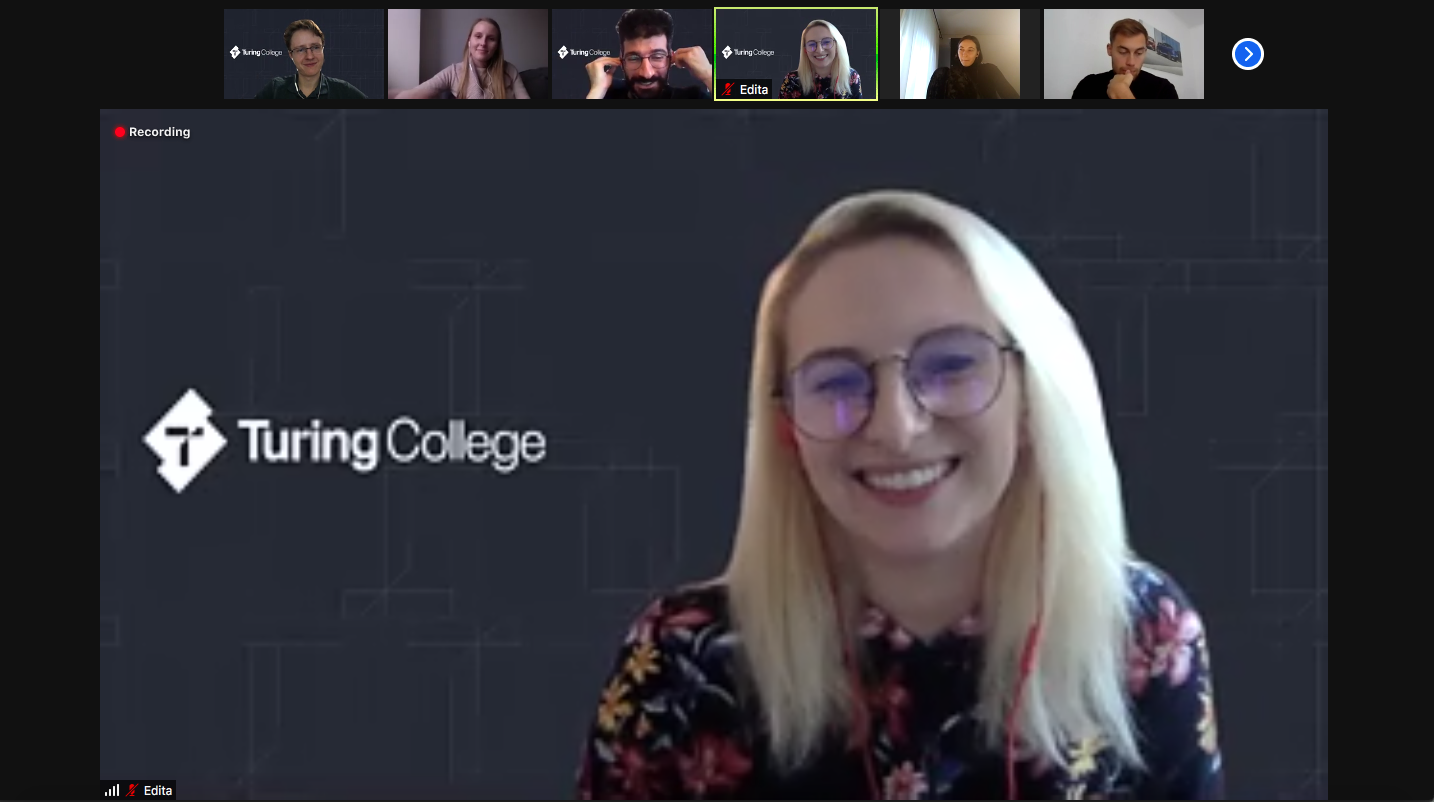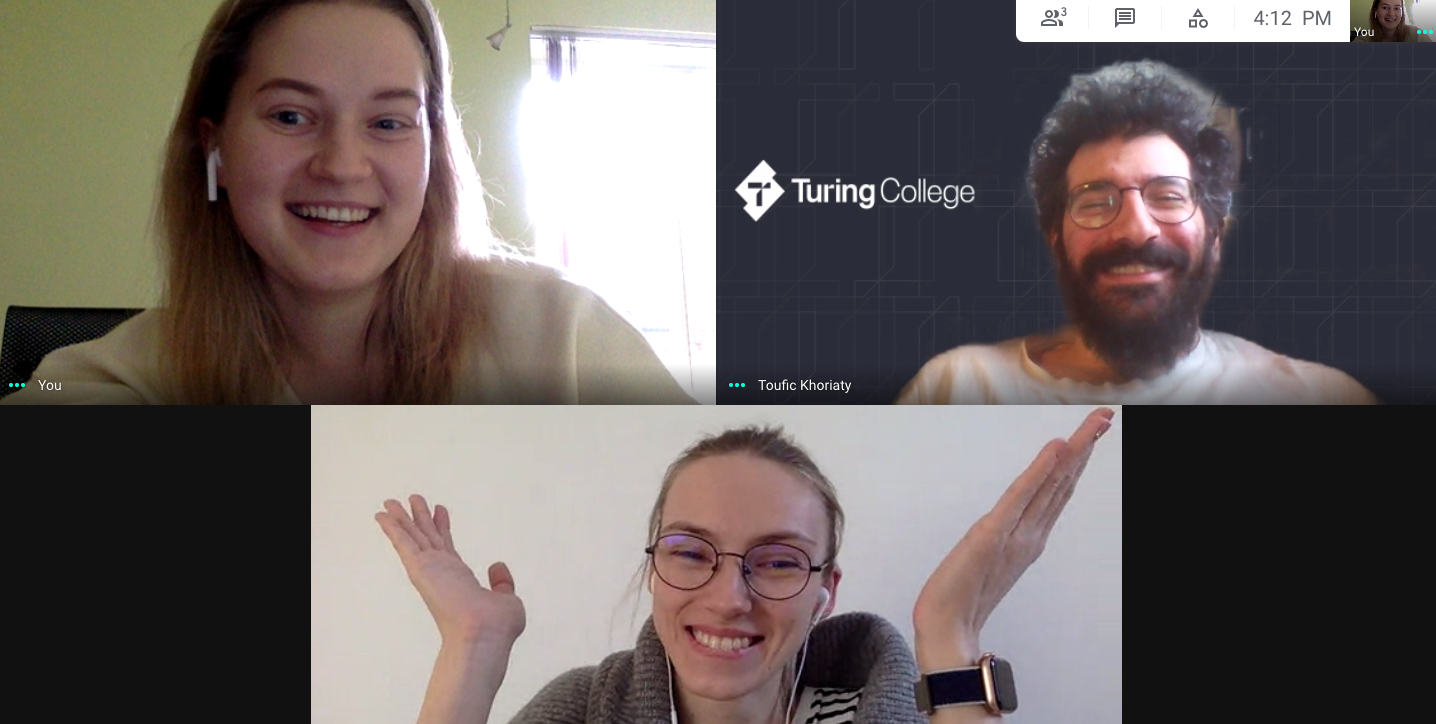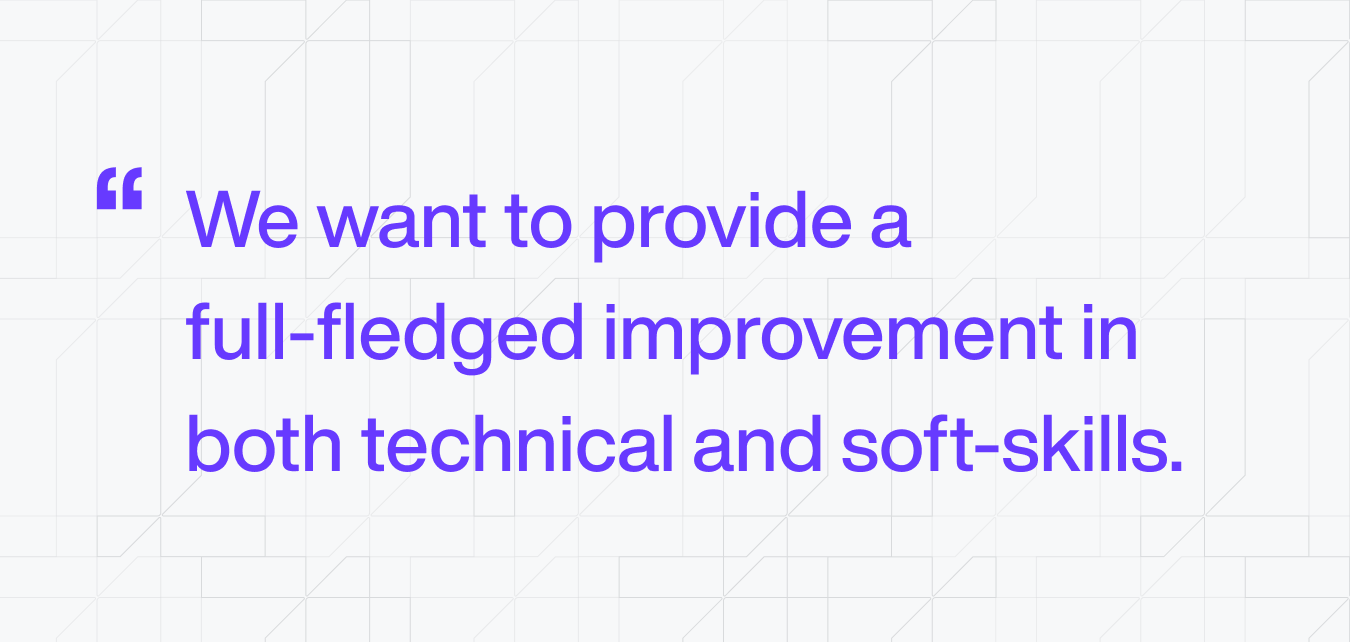3 Reasons Why Data Science Learners Need a Supportive Community

There have never been more opportunities to learn by yourself. And self-study offers some great advantages:
- You can progress at your own pace,
- You can focus on the topics that interest you most,
- You can fit your studies into your existing schedule and commitments.
But studying alone brings a unique set of challenges too. How do you stay motivated? Who do you turn to when the going gets tough? How do you learn to collaborate and work with others?
The challenge of self study and the need for community
We conducted some research from our first batches of learners on their experiences before joining Turing College. We discovered that their biggest struggle was the lack of a supportive community that would encourage and enrich their learning:
- 41% of our 3rd batch said they "wanted a feeling of belonging" and needed to be surrounded by like-minded people,
- 29% of learners in our earlier batches reported that learning on their own was "too hard",
- And 22% of them said other courses didn't have support mechanisms that would push them forward in their studies.
So, what is it about a supportive community that is so valuable for data science learners? We caught up with 4 members of the Turing College team who work on building our community:
- Career Development Coordinator Toufic Khoriaty,
- Project Manager Jurgita Tamolytė,
- Head of People & Events Algė Masiulytė,
- and Chief Community Officer Edita Dudulienė.
Let's look at 3 reasons they identified as to why data science learners need a supportive community.

Reason 1: Help when the learning data science gets tough
Acquiring new skills and knowledge is always going to bring challenges. By definition, you are pushing yourself outside of your comfort zone. And this can be tough. You might struggle for motivation at times. Or maybe you'll push yourself too hard and get overwhelmed.
When the learning data science gets tough, having a community you feel at home in makes a huge difference.
Project Manager Jurgita Tamolytė explains that "community is something that makes our learners feel 'I am not alone in this' and 'I can be myself here'".
It's a view backed up by Chief Community Officer Edita Dudulienė:
"Many of our learners have already mentioned that the community helps and guides them at difficult times and gives them a sense of belonging."
And for Algė Masiulytė, Head of People & Events, communities can be a source of power as well as belonging. "Our main goal is to empower and support our learners to succeed with the program," she explains.

Reason 2: Sharing valuable data science know-how
The second reason community is so important is that, as the saying goes, two heads are better than one (or ninety heads in the case of the Turing College community).
In other words, there is a huge wealth of knowledge and experience to tap into within a community. As Toufic Khoriaty, Career Development Coordinator, explains, this includes "easy tips and tricks that they might need in the course."
And because our course focuses on every facet of work as a data scientist, including soft skills, every learner within our community has something to offer, whatever their education level and experience before studying data science. In Turing College, everyone shares: "learners communicate and engage with Turing College staff, and amongst each other," explains Toufic.
Another important component of our community is the presence of real, working data scientists who are actively involved in the learning process, either as Senior Team Leads or as Mentors. These professionals "can offer guidance and share their knowledge, providing help at the moment when it is needed most and building relationships that benefit learners long after the course has been completed," points out Edita.
Reason 3: Developing the soft skills needed for real data science work
A final reason why community is so important to data science education is that it helps to foster the soft skills data scientists will need in their career. That's because a vibrant community encourages collaboration and communication, two vital skills for any data scientist.
"We have regular events in our community," explains Algė. "There are communal sessions, biweekly Coffee Buddy calls, meetings with our Hiring Partners, and other workshops and talks. They help to build our learner’s soft skills and create connections between learners."
"They might only sound like regular events, but they actually have a powerful impact on our learners’ success."
And as Toufic points out, soft skills are also developed through regular interaction with staff, mentors and Senior Team Leads. "This communication takes place in parallel to learning and practicing data science, plus there are structured workshops that help learners to improve their soft skills," he says.

A community just like real working life
Ultimately, the goal is to replicate real work conditions, thereby developing the actual skills learners will need. And real working conditions include a supportive community, from colleagues to mentors to supervisors. What these people provide is guidance, support and a sense of belonging. They are like-minded individuals who go along with you on your journey as a professional.
But Turing College's ethos is, why wait until the workplace to create this kind of community?
"We want to provide a full-fledged improvement in both technical and soft-skills," says Edita. "Our program is designed to recreate the real working conditions of an IT team as accurately as possible."
And the Turing College community, from learners and staff to mentors and Senior Team Leads, is critical to this mission.
